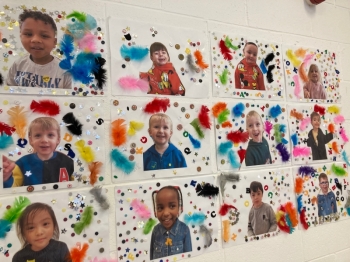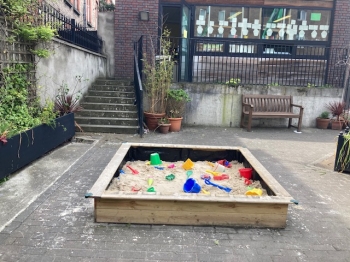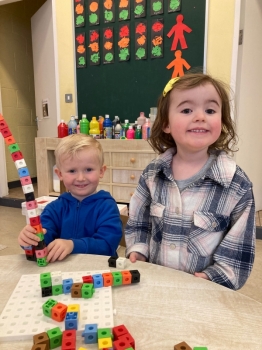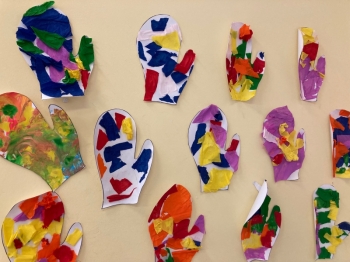
Early Start Programme
Our enrolment for Early Start 2023/2024 is now open!
**
Please find below our Early Start Policy and a copy of our Application Form. Application forms are also available from the office.
Please be aware that submitting an enrolment form for a child does not guarantee a place in Early Start. Places will be allocated based on the criteria laid out in our Early Start Policy below.
The Early Start Programme is a one-year preventative intervention scheme offered in selected schools in designated disadvantaged areas. The objective of the pre-school programme is to tackle educational disadvantage by targeting children who are at risk of not reaching their potential within the school system.
The programme is managed, funded and evaluated by the Department of Education. Children must be aged more than 3 years 2 months and less than 4 years 7 months on the 1st day of September of the year in which they are enrolled. Children may either be enrolled in Early Start or in the Early Childhood Care and Education Scheme (ECCE). Children are not eligible to be enrolled in both schemes at the same time. St. Brigid’s Primary School the Coombe, has an Early Start programme consisting of 1 teacher and 1 childcare worker. There are two sessions daily. The length of the school day for children in Early Start is two and a half hours. The morning session runs from 9:00am – 11:30am and the afternoon session runs from 12:10pm – 2:40pm. There are 15 places available for children in each session.
The Early Start Programme
The aims of Early Start are:
- To implement an educational programme that will enhance the overall development of young children and prevent school failure.
- To counteract the effects of social disadvantage.
The desired outcomes of Early Start are:
- That the children involved in the programme will develop confidence in their ability to learn.
- That the children involved in the programme will develop learning styles, which are led by motivated, organised and appropriately independent behaviour.
- That the children involved in the programme will develop their language, cognition and social/personal skills to the extent that they will be able to easily adapt to school life in the future.
- That the 'learning through play' approach used in the programme will be positive and enjoyable for the children involved.
- That the parents of participating children will become actively involved in their children's education.
Our Early Start pre-school is accommodated within St. Brigid’s Primary School. The teachers and childcare workers in Early Start are members of staff and are under the general supervision of the Board of Management and the principal teacher. Early Start is regarded as an integral part of the primary school and benefits from the managerial and administrative services of the school.
Parental involvement is also a key element in the Early Start project. Working in conjunction with the school's Home School Community Liaison Co-ordinator, the Early Start staff encourage parents to take part in activities.
Early Start is a one-year intervention programme. It is designed to cater for children in the year before they enter junior infants. After completing the Early Start programme, children should proceed to the Junior Infants class.
If it is the opinion of a professional working in the special needs sector or the principal that a particular child would, on an exceptional basis, benefit either (i) from a waiver of the upper age limit or (ii) from a second year of Early Start prior to joining Junior Infants, the Department of Education and Skills’ sanction must be sought in writing by the school prior to the child’s enrolment. The Department will examine each application on a case-by-case basis. The child should not be enrolled in the school until formal Department sanction is obtained.
Early Start Activities
- The curriculum of the programme prioritises the four core areas of language, cognition and social and personal development. This is done by engaging the children in structured play activities, aimed at enhancing their development in the core areas. Within these play activities, teachers set specific learning objectives for each child. Play and positive adult-child interaction are the cornerstones of the Early Start activities. Some examples of activities include: Aistear, Sand and Water Play, Construction Play, Creative/ Imaginary Play, Jigsaws, Games, Art, Music, Movement, Story, Drama.




